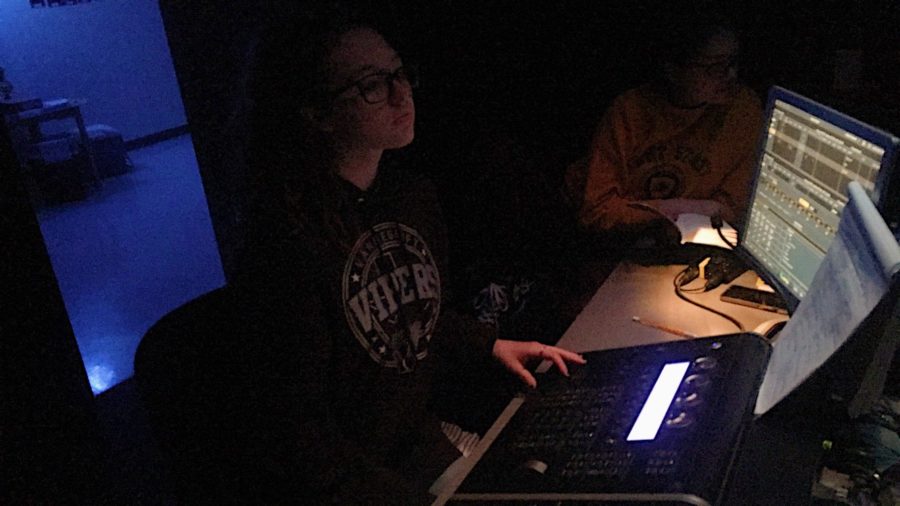The other side of the curtain
How becoming a theatre technician helped me grow in stage production
Claire Lawrence running through a tech rehearsal with Vandegrift Theatre Company
January 14, 2019
Ever since I was a little girl, I was obsessed with being the center of attention. I would always hog the spotlight in any situation given, and my parents were prone to call me the stereotypical drama queen. Around the sixth grade, I enrolled myself in the school musical and found myself acting onstage for the first time in my life. Family from all across the state came to watch my middle school’s mediocre performance of “Beauty and the Beast Jr.” Afterward, I was showered with flowers and compliments.
I enjoyed my time on stage so much, that I began taking theatre as an elective in middle school, and followed through with it in high school. But growing into a real teenager mindset (one that was set on realistic things like college and a career), I realized that being center stage might not be my real calling. Not wanting to step too far from the stage, I took up opportunities to work backstage with the tech crew and did shows where I would move the sets around rather than act on them. When I explained that I wanted to drop out of theatre class and start taking tech instead, my parents weren’t all that surprised. My mom told me she always saw a little bit of boss in me that wanted to take charge. So, that’s exactly what I did.
For the past two years, I’ve been taking on the role of both stage and assistant stage manager for Vandegrift Theatre Company productions. Working alongside the friends I’ve made throughout this journey, I’ve learned that there’s so much more to putting on a show when you’re working on the other side of things.
Acting on stage and attending rehearsals as an actor, I was always self-centered and only focused on making things work for myself. As a stage manager, I have the responsibility of making sure everything is on the right track, especially on show nights because I am the one running things, not the director. Everything is put into my crew’s hands. From calling all light and sound cues during a performance, to the safety of actors and other crew members, without a stage manager, a production would not exist.
Back in middle school, it might’ve just been immaturity and not knowing what professional theatre was like in the real world, but now that I’ve experienced a production on the other side of the curtain, I understand the amount of work, effort and time put into a show once the actors go home.
The learning experience of getting to be in charge of a school production has also helped me prepare for what things will be like when I go off to college. Unlike middle school theatre, in high school, teachers make sure to prepare students for the real world, and even for auditioning for the school a student wants to get into. With all the chances I’ve had both backstage and onstage, I can now say that I better understand the art of theatre and how to accomplish a show with the teamwork of not only actors, but also every single technician that’s placed behind the scenes.







